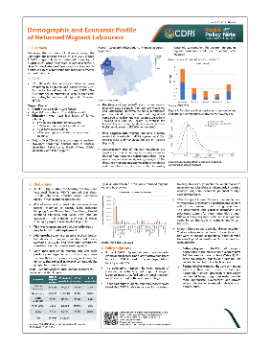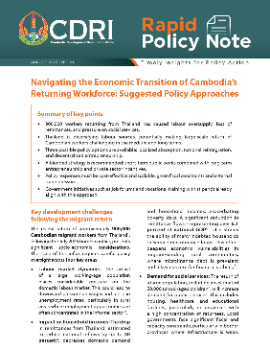
Economic Reform, Structural Adjustment and Development in Cambodia
Keyword: Structural adjustment programme, Cambodia, economic development, poverty and inequality, role of the state
Abstract/Summary
This paper deals with the nature, content and implications of the Structural Adjustment Programme under implementation in Cambodia as a result of an agreement between the Royal Government of Cambodia and the International Monetary Fund/World Bank. The discussion is set in the context of the legacy of war and devastation during the seventies and eighties on the one hand, and the imperatives of long-term development of a poor agrarian economy on the other. The paper recognises Cambodia's historic opportunity to break away from a one-sided economic and political dependence. While the programmes of stabilisation and adjustment could be considered as successful compared to similarly placed economies, these are limited only to such macro economic indicators as budget deficit, inflation and exchange rate. The crucial role of external assistance in such short-term stabilisation needs to be emphasised. The paper argues, however, that the content of adjustment should be judged by its impact on the large majority of the poor people. It cautions against an uncritical acceptance of the power of the market dominated by a private sector in addressing the economic problems as well as the longterm developmental problems of Cambodia. The paper cites evidences of growing inequality between urban and rural areas and between richer and poorer sections. While encouraging the market to operate in areas where it can perform better than the public sector, the paper argues for a new role for the state in terms of regulating the course of economic development as well as mobilising resources for investment in social and economic infrastructure. Experiences of selected Asian countries are cited to convey the point that both state and market have their respective roles to play in economic development.
DOI: https://doi.org/10.64202/wp.03.199701



